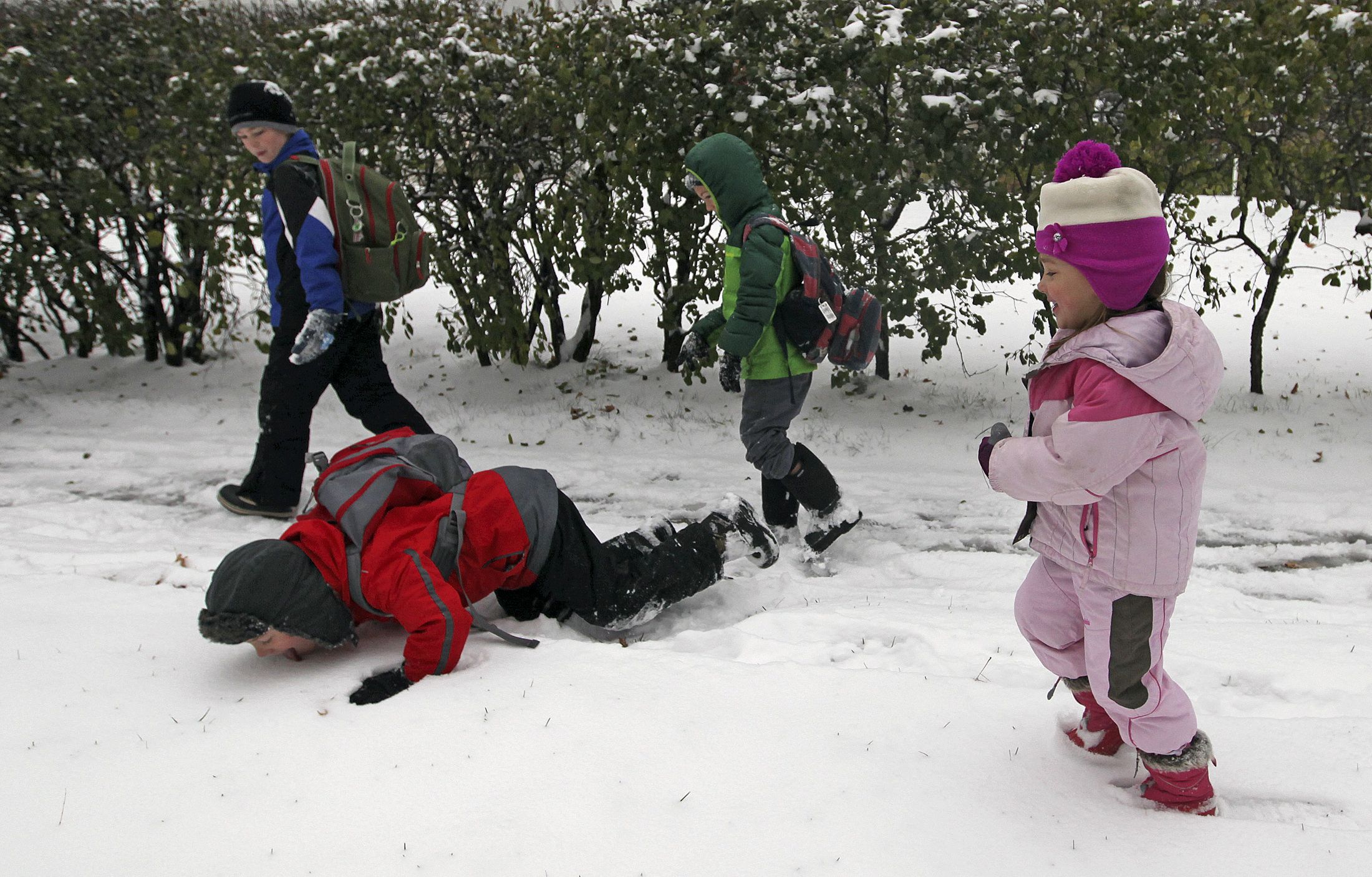
Growing up in snowy regions means, at some point, scooping up a mittenfull of fallen snow and taking a big bite. But according to new research, snow acts as a sink for an assortment of toxic particles. That means that what looks like a pure white treat might actually be dangerous to your health. Don't eat the toxic snow, kids.
In a study published last week in Environmental Science: Processes & Impacts, a journal of the Royal Society of Chemistry, a team of scientists in Canada found that snow in urban areas soaks up the toxic and cancer-causing nanoparticles that are found in car exhaust.
The snow appears to very effectively remove those particles from the air, but they are then of course embedded in the snow—making the snow a less-than-pure thing to ingest.
"Snow flakes are ice particles with various types of surfaces, including several active sites, that can absorb various gaseous or particulate pollutants," Parisa Ariya, a professor at McGill University and lead author on the study, told The Huffington Post. "As a mother who is an atmospheric physical chemist, I definitely do not suggest my young kids to eat snow in urban areas in general."
The research team collected snow for the study from a park in Montreal, where it snows five months out of the year. They measured levels of toxic compounds typically found in car exhaust, like benzene, toluene, ethylbenzene and xylenes, which are all considered either carcinogenic, harmful to development or a respiratory irritant. They found that after one hour of exposure to exhaust fumes, the concentration of those chemicals in the snowpack increased dramatically.
The finding suggests a need to study what happens after the snow melts, according to Ariya. Since the snow is clearly a temporary sink for pollutants, emissions of such toxins might increase rapidly as the snow melts and the chemicals are re-released into the environment. "This is not just important for Canada, but other industrial regions like China that emit very diverse compounds, which are subject to transport around the globe," Ariya said in a press release.
Uncommon Knowledge
Newsweek is committed to challenging conventional wisdom and finding connections in the search for common ground.
Newsweek is committed to challenging conventional wisdom and finding connections in the search for common ground.
About the writer
Zoë is a senior writer at Newsweek. She covers science, the environment, and human health. She has written for a ... Read more
To read how Newsweek uses AI as a newsroom tool, Click here.








